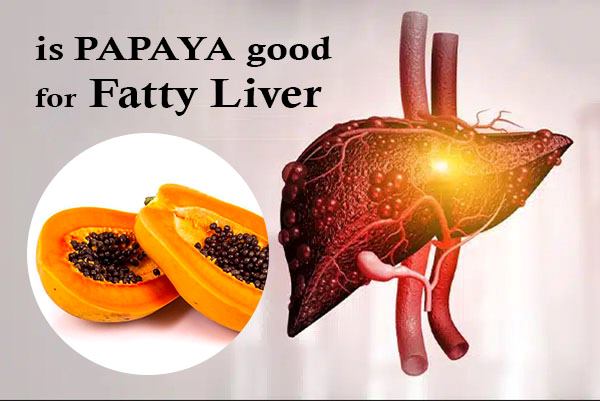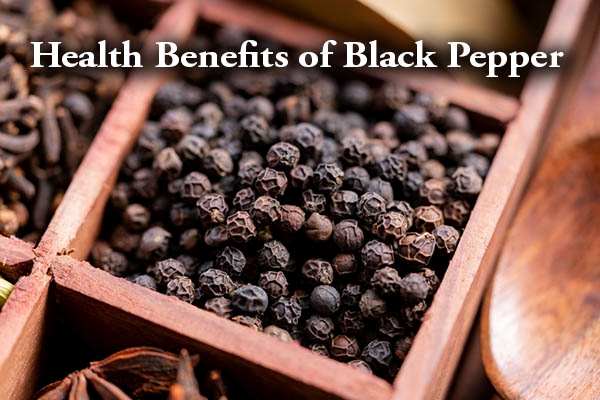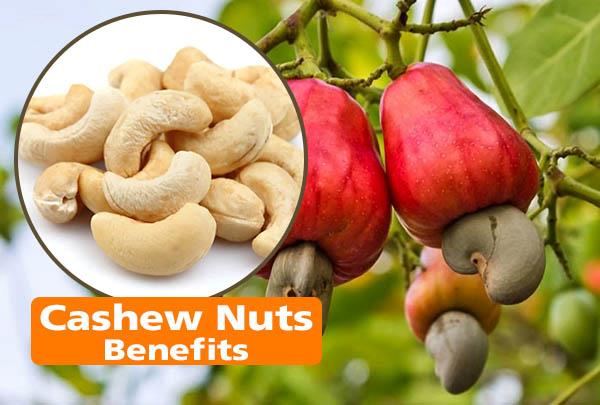Worried about fatty liver? You may hard papaya is good for liver, but not sure, Is papaya good for fatty liver? or not. In this article know the potential benefits of this tropical fruit for hepatic wellness. Discover how papaya’s antioxidants, fiber, and enzymes support liver function, complementing a balanced approach to managing fatty liver disease.
Table of Contents
Papaya
Papaya is a tropical large fruit that can weigh up to several pounds and has a green or yellow skin that is thin and smooth. The flesh of the papaya is orange or pink and is sweet and juicy, with a texture that is similar to a melon. Papaya is a rich source of vitamins A, C, and E, as well as folate, potassium, and fiber. It is also known for its digestive enzymes, such as papain and chymopapain, which can help to break down proteins and improve digestion. Papaya can be eaten fresh, dried, or in smoothies, and is a popular ingredient in many cuisines around the world.
What is Fatty Liver?
Fatty liver, medically known as hepatic steatosis, is a condition characterized by the accumulation of excess fat within liver cells. This can occur when there is an imbalance between the amount of fat entering the liver and the rate at which it is metabolized and removed. There are two main types of fatty liver disease:
- Non-Alcoholic Fatty Liver Disease (NAFLD): This is the most common form and is not directly related to alcohol consumption. NAFLD is often associated with obesity, insulin resistance, high blood sugar, high cholesterol, and metabolic syndrome. It can range from simple fatty liver (steatosis) to more severe forms, such as non-alcoholic steatohepatitis (NASH), which involves inflammation and potential liver damage.
- Alcoholic Fatty Liver Disease (AFLD): As the name suggests, this type of fatty liver disease is caused by excessive alcohol consumption. Alcohol is metabolized in the liver, and heavy drinking can lead to fat accumulation in liver cells, potentially progressing to alcoholic hepatitis and cirrhosis if not addressed.
Fatty liver itself might not cause symptoms in the early stages, but as it progresses, it can lead to liver inflammation, scarring (fibrosis), and, in severe cases, cirrhosis—a condition where healthy liver tissue is replaced by scar tissue. Lifestyle factors such as diet, exercise, and alcohol consumption play a significant role in the development and management of fatty liver disease. If you suspect you have fatty liver or are concerned about your liver health, it’s important to consult a healthcare professional for proper diagnosis and guidance.
What are the Causes of Fatty Liver?
Here are some causes of fatty liver, supported by various studies:
- Metabolic dysfunction: A fatty liver is often associated with metabolic dysfunction, such as insulin resistance, obesity, and type 2 diabetes.
- Genetic factors: Some genetic factors have been linked to the development of fatty liver. For example, hereditary deficiency of hormone-sensitive lipase (HSL) has been shown to cause fatty liver in mice.
- Endocrine disorders: Endocrine disorders such as polycystic ovary syndrome, hypothyroidism, growth hormone deficiency, and hypercortisolism can also cause fatty liver.
- Alcohol consumption: Excessive alcohol consumption is a well-known cause of fatty liver, known as alcoholic fatty liver disease.
- Dietary factors: A diet high in saturated and trans fats, as well as refined carbohydrates, can contribute to the development of fatty liver.
- Medications: Certain medications, such as corticosteroids, tamoxifen, and methotrexate, can cause fatty liver as a side effect.
- MBOAT7 gene mutations: Mutations in the MBOAT7 gene have been linked to an increased risk of fatty liver disease and cirrhosis.
It is important to note that fatty liver can also be caused by a combination of these factors, and that the underlying cause may vary from person to person.
How is fatty liver diagnosed?
Fatty liver can be diagnosed through various methods, including imaging tests and blood tests. Here are some common methods for diagnosing fatty liver, supported by various studies:
- Imaging tests: Imaging tests such as ultrasound, computed tomography (CT), and magnetic resonance imaging (MRI) can be used to detect the presence of fat in the liver.
- Blood tests: Blood tests can be used to measure liver enzymes and other markers of liver function, which can indicate the presence of fatty liver disease.
- Liver biopsy: A liver biopsy may be performed to confirm the diagnosis of fatty liver and to determine the extent of liver damage.
It is important to note that the diagnosis of fatty liver may vary depending on the underlying cause of the condition. For example, if the cause of fatty liver is alcohol consumption, a doctor may perform additional tests to determine the extent of liver damage and to rule out other liver diseases. Additionally, the recent introduction of the new definition of fatty liver, metabolic dysfunction-associated fatty liver disease (MAFLD), may impact the diagnosis and management of fatty liver in the future.
Is Papaya Good for Fatty Liver?
Papaya is considered to be a healthy fruit that offers various nutritional benefits, but its direct impact on fatty liver disease might not be as clear-cut. Fatty liver disease, also known as hepatic steatosis, can be caused by the accumulation of fat in liver cells. There are two main types: non-alcoholic fatty liver disease (NAFLD) and alcoholic fatty liver disease (AFLD). NAFLD is more common and is often associated with factors like obesity, poor diet, and sedentary lifestyle.
Papaya contains antioxidants like vitamin C, vitamin E, beta-carotene, Papain, dietary fiber, and minerals that benefit to liver health. While papaya can offer these potential benefits, it’s important to note that there is no specific “magic food” that can single-handedly cure or treat fatty liver disease. Managing fatty liver disease often involves a combination of factors, including a balanced diet, weight management, physical activity, and avoiding excessive alcohol consumption. If you have fatty liver disease, it’s advisable to consult with a healthcare professional or a registered dietitian who can provide personalized guidance based on your individual health status and dietary needs.
10 Benefits of Papaya for Liver
Papaya is a fruit that is rich in phytochemicals and has been shown to have therapeutic benefits in different types of ailments1. Here are 10 benefits of papaya for liver health, supported by various studies:
- Safe for normal liver functioning: A study found that chosen doses of aqueous extract of papaya seeds are safe for normal liver functioning1.
- Hepatomodulatory activities: Another study showed that carica papaya seeds have possible hepatomodulatory activities with hepatoprotective effects.
- Hepatoprotective and antioxidant potential: Hydroethanol extracts of Allium sativum and Carica papaya were found to have hepatoprotective and antioxidant potential against CCl4-induced toxicity in rats.
- Immunomodulatory effect: Carica papaya leaves extract was found to possess an immunomodulatory effect and did not show any detrimental effect on the brain histology, liver, and general well-being.
- Better antioxidant activities: A study found that Carica papaya seed oil exhibited better antioxidant activities and health benefits than the commonly consumed groundnut oil.
- Reduces serum levels of liver functional enzymes: A study showed that aqueous extract of carica papaya seeds significantly decreased serum alanine aminotransferase (ALT), aspartate aminotransferase (AST), and alkaline phosphatase (ALP) enzymes.
- Increases serum conjugated bilirubin levels: The same study also found that the extract increased serum conjugated bilirubin levels.
- No significant alterations in total serum proteins: The study mentioned in point 6 found that total serum proteins value showed no definite alterations.
- Reduces free fatty acids: A study found that Carica papaya seed oil significantly reduced free fatty acids in the liver.
- Increases superoxide dismutase, peroxidase, and reduced glutathione in liver: The same study found that all diets significantly increased superoxide dismutase, peroxidase, and reduced glutathione in the liver.
Overall, papaya and its various parts have shown potential benefits for liver health, including hepatoprotective and antioxidant effects, and the ability to modulate liver enzymes. However, more research is needed to fully understand the mechanisms behind these effects and to determine safe and effective doses for human consumption. See also: How To Use Papaya Seeds For Hair Growth?
Side effects of consuming papaya for liver health
While papaya has been shown to have potential benefits for liver health, there are some side effects to consider. Here are some possible side effects of consuming papaya for liver health:
- Allergic reactions: Some people may be allergic to papaya and may experience an allergic reaction after consuming it. Symptoms of an allergic reaction may include itching, hives, swelling, and difficulty breathing.
- Gastrointestinal issues: Consuming large amounts of papaya may cause gastrointestinal issues such as diarrhea, nausea, and stomach cramps.
- Interactions with medications: Papaya may interact with certain medications, such as blood thinners and diabetes medications, and may affect their effectiveness.
Overall, papaya is a nutritious fruit that can provide many benefits for people with fatty liver disease. However, it is important to consult with a healthcare professional before making any dietary changes or starting a new treatment plan.
How does Papaya cure Fatty Liver?
There is limited research on the specific effects of papaya on fatty liver. However, some studies suggest that papaya may have potential benefits for fatty liver due to its antioxidant and anti-inflammatory properties. Here are some ways in which papaya may help treat fatty liver, based on the available research:
- Reduces oxidative stress: Oxidative stress is a key factor in the development of fatty liver. Papaya is rich in antioxidants, such as carotenoids and vitamin C, which can help reduce oxidative stress and inflammation in the liver.
- Improves lipid metabolism: Some studies have shown that papaya may help improve lipid metabolism in the liver, which can reduce the accumulation of fat in liver cells.
- Attenuates inflammation: Inflammation is another key factor in the development of fatty liver. Papaya contains anti-inflammatory compounds, such as flavonoids and phenolic acids, which can help reduce inflammation in the liver.
- Improves liver function: Papaya may also help improve liver function by reducing liver enzymes and improving liver histology.
It is important to note that more research is needed to fully understand the effects of papaya on fatty liver and to determine safe and effective doses for human consumption. Additionally, lifestyle modifications such as weight loss and dietary changes should be the first line of treatment for fatty liver, as they are safe and effective for most individuals.
The Bottom Line
While papaya can offer these potential benefits, it’s important to note that there is no specific “magic food” that can single-handedly cure or treat fatty liver disease. Managing fatty liver disease often involves a combination of factors, including a balanced diet, weight management, physical activity, and avoiding excessive alcohol consumption. If you have fatty liver disease, it’s advisable to consult with a healthcare professional or a registered dietitian who can provide personalized guidance based on your individual health status and dietary needs.





2 thoughts on “Is papaya good for fatty liver? Unveiling the Truth”